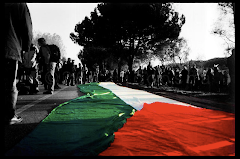CARE, in partnership with Alpha International surveying firm, conducted a three-day phone survey of families in Gaza to gather basic data on the humanitarian needs; status of electricity, water and sewage systems; impact of cash, food and medicine shortages; psychological impact on children; and the condition of displaced people sheltering with families or neighbours. The key findings of the survey are below.
Note on methodology: The sample for the survey included 525 people throughout the Gaza Strip aged 18 years and above. Data collection was conducted between the Jan. 17-19 2009. The sample was selected using stratified random sampling from the Palestinian phone directory, from a master sample of 150,000 phone numbers, mostly land lines. Results from the survey are limited to respondents who had working phone lines. The margin of error for the survey is 4.3%.
About CARE: CARE is one of the world’s largest humanitarian aid agencies, providing assistance in nearly 70 countries. CARE has been working in Israel, West Bank and Gaza since 1948 (with a short break from 1984-1994), initially implementing programs to help refugees after the Holocaust. Since the conflict started Dec. 27, CARE has distributed fresh food, medical supplies, heaters, blankets and plastic sheeting to hospitals, families and feeding centres in Gaza, reaching 160,000 people.
http://www.carewbg.org/index.asp
About Alpha International: Alpha International is an independent private research company that specializes in the area of needs assessment, monitoring and evaluation as well as survey research. Alpha has designed and implemented many surveys in the West Bank and Gaza Strip for both local and international organizations. Alpha adopts both qualitative and quantitative research methods in conducting needs assessment and evaluation studies.
Key findings of the survey:
Impact on children: Almost all (95%) households reported a high level of fear among children, with more than half of all children suffering from bed-wetting (62%), general weakness (64%), nervousness (73%), increase aggressiveness (61%), sleeplessness (87%), nightmares (79%), and headaches or stomach aches (57%).
Displaced people: 56% of respondents say they are hosting displaced people. Of those families who are hosting displaced people, 76% of respondents said they are hosting between 1-20 people – mainly relatives, friends or neighbours. The main reasons (42%) for displacement was damage or destruction of their homes.
Access to basic health care: 56% say they have problems accessing basic medications such as antibiotics, and medicine for fever, diabetes, heart disease and hypertension. Of those people, 59% reported health complications and decline in health status as a result of problems accessing basic medications. Half (50%) the respondents said they would not be able to reach a basic health facility if they needed to. (NOTE: One-third of respondents in this survey were contacted before the ceasefire was implemented.)
Water and sanitation: Approximately one-third (32%) of households reported that water was their most urgent need with 71% reporting problems with access or quality of water (high price, damaged networks, lack of availability of water tankers, etc). 47% say there is no garbage collection in their neighbourhood, and the majority (67%) of respondents said they throw waste into the street, raising health risks.
Electricity: While electricity is being restored to some areas of the Gaza Strip this week, 86% of respondents say they have electricity blackouts most or all of the time.
Food security: 86% say they have cash shortages. Half (50%) of respondents said food was their most urgent need. 84% say they have problems accessing food. To cope, people have reduced food consumption or switched to less nutritious food. Food items most requested include flour, bread, sugar, rice, meat and children’s food.
Access to humanitarian assistance: 89% of respondents said they have not received any humanitarian assistance from international NGOs or NGOs during the hostilities.










No comments:
Post a Comment